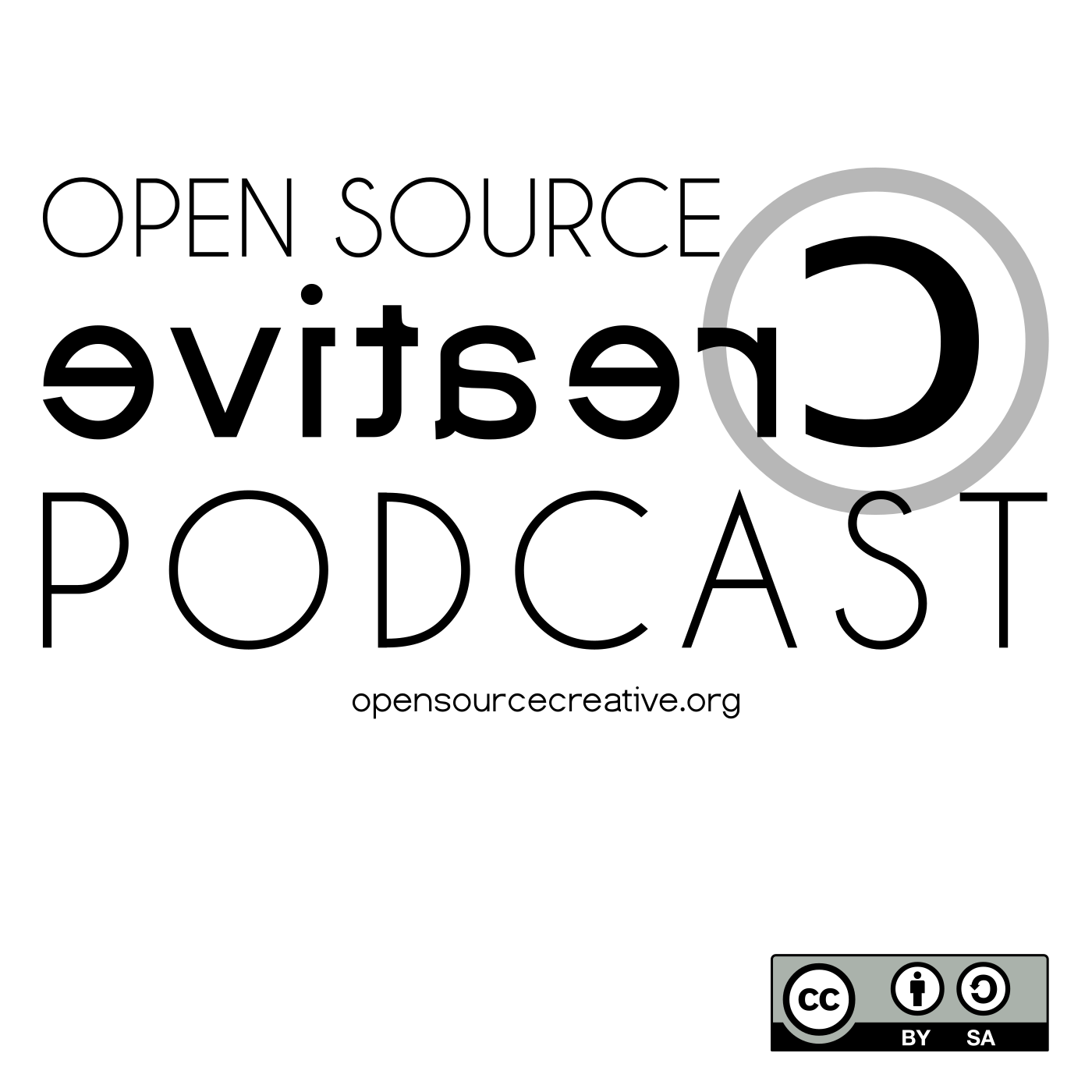#15 Idiots and Hypocrites: Used Digital Media
Posted on Saturday, Feb 28, 2015
Show Notes
I have a strange feeling that this episode is going to get me into a bit of trouble. Maybe. We’ll see. I get into details and backstory in the actual episode, but it all started with a question (or, better, replies to a question) regarding the resale of “used” digital content—specifically ebooks—in an episode of the Sell More Books Show, a podcast that’s pretty prevalent in the indie publishing scene. This episode is a bit of a rant launched from that premise. To sum up, the way I look at it is as follows:
- If you think that reselling “used” digital media makes any sense, you’re an idiot.
- If you have a problem with used digital content (dumb as that idea is), but don’t have the same problem with used content in physical media, you’re a hypocrite.
- And, if you’re releasing some of your content for free (as in beer) as a marketing tactic, but you don’t see used resales or even piracy as additional marketing venues, you’re also a hypocrite.
So yeah… that’s my piece. I’m looking forward to see what everyone else thinks.
In me-related news, here are a couple links:
- Afterwriting - This is a fantastic little web-based (javascript, from the looks of it) open source tool for converting screenplays written in the fountain syntax to properly formatted PDFs. It also gives some interesting stats about your screenplays as well. Definitely worth a look.
- LinuxLUGcast - I recently started participating in this Mumble chat LUG. Meetings happen every 1st and 3rd Friday, they’re recorded, and shared as a podcast. Pretty cool.
And links related to open source creative news stuff:
- Autodesk goes full rental - Come 2016, perpetual licenses will end for any Autodesk product that isn’t a suite.
- Follow-up on the Krita in Paris 8 story - Libre Graphics World has a really in-depth article that has a lot more detail on how that happened and what the next steps are.
- Libre Graphics Meeting submission deadline extended - unfortunately, it’s well past even that extension date now… but the meeting is still worth attending. It’s in Toronto this year.
- Bassam Kurdali interview on Renderstreet - Bassam’s mind words in exciting ways. This interview gives a lot of insight into how he thinks.
- Dependency graph article on the Blender development blog - This one is actually written by Bassam. Lots of nice goodies coming in Blender’s dependency graph.
New software releases:
Whew… that’s a lot of stuff.
2 Archived Comments
**Dave Hingley, Mar 4, 2015
Hi Jason.
listened to your latest podcast. and initially, I thought we were going to have disagreements, but I totally see where you are coming from. Originators don’t get a cut in profits from second hand/nearly new/preloved content. and if they did, Our society would become radically different.
Our consumer culture would become even more pronounced and things would be thrown away with being reused,recycled or repurposed, because if you are going to get into legal trouble using that old hair straightener to iron collars or turn it into some kind of DIY laminator, then ingenuity and creativity would suffer. indeed pcs would only ever be mac or Windows. the concept of open source would just not be there
however the rest of your points prompted a series of questions- not necessarily disagreeing with you but here’s some ‘what -ifs’ :
the main problem with selling pre owned digital content is that it doesn’t degrade. thats true to a certain extent but on my blog I have examined a couple of cases where digital data had to be carefully restored in this case 30 year old amiga drawings by Andy Warhol (http://titaniumbunker.com/?p=3508) (about half way through the post) its possible and i am sure some bibliophiles do buy multiple first editions of books and lock them away to sell them many years later. The same happens with cars so why not books? would it be better if say over time the pages of a digital document became degraded – not un readable but more blurred or faded? what if an mp3 had more hiss and clicks in tracks? or color faded from video. that way the user isn’t getting quite the same experience of buying the content new?
if you buy a licence to run a piece of software then does the provider of the software have any obligations? I have a copy of flash 4 i bought years ago ( i use inkscape these days), but as someone who still has a licence to use this software, should adobe have an obligation to port my copy of flash4 to my current platform (linux)? if an operating system is updated, should they provide me with an update for free? after all while companies release newer versions of their software you dont have to upgrade to it, and when i have bought software before no one has ever told me when the licence expires . indeed If companies are moving over to a subscription type model, then shouldn’t the software be available to me on any platform i want? so If i am signing up to Adobe Creative cloud, I should be able to run after effects from linux. because otherwise the licence is actually quite restrictive, not only do you have to make sure you have a machine that meets their requirements but you also have to use th eoperating system they decide to release on – seems like the user is doing all the work, and paying to use the software…
There is a line of demarcation between selling pre used digital content and piracy, if you make a copy then sell it on , it’s piracy, pure and simple. If you are selling it on,then like you say, you are charging for a transfer of the licence to own the content. And I do think its important to recognise the difference between the two
Working for free: you say that a valid way of earning an income from digital art is to give away some free art in order to build a following. in what way is this different to those emails we all get that say ‘we can’t pay you but it will be great for your profile’ Maybe I am just cynical but surely if you got some free content and theres the option to pay to get some more you might just think ‘i’m good right here’ and not get any. after all the other business that fits this model is free to play games for tablets, and i make it a point to never pay for extra in game features.
Finally, thanks for a great podcast I look forward to the next episode
Regards
Dave Hingley
Jason, Mar 4, 2015
Wow… what an incredibly thorough and well thought-out comment. Thank you, Dave.
Let’s see if I can adequately address some of your points/questions:
Degrading digital content over time: I can see the appeal that this may have (at first) for a digital distributor. However, it kind of undermines the benefits of digital media for that distributor as well. Remember that there’s negligible cost to distribute a digital file… forever. If the file degrades for consumers, it would also degrade for the distributor.
Obligating software vendors: While this certainly sounds nice from a customer perspective, I think it’s pretty untenable from a business perspective. Of course, it’s also part of the reason why I prefer to exclusively use free and open source software.
Distinguishing between used sales and piracy: Legally and ethically, I agree with you. There is a difference. Of course, it could also be argued that the digital copying used in piracy is a closer match to the natural use of digital media. Regardless, the point I was making here is that a lot of indies use free distribution of some of their content as an exposure play in marketing. Used digital sales (ludicrous though they are) are also free (as in zero money to the artist) distribution channels that provide exposure. My opinion is that if an artist is using free releases as part of a marketing strategy, but disparaging used sales and piracy, that’s a bit hypocritical.
Working for free: What you’re talking about here is spec work… and it’s a big topic that I don’t think I can give adequate justice to in a blog comment. That said, I think that my rant in this episode has helped me solidify my thoughts on where I stand regarding spec work… and I think I’ll make that discussion the topic of my next episode. :)
Again, thanks so much for the in-depth comment and a huge thank you for listening to the show. I’m glad you enjoy it. I look forward to reading your thoughts on the next one.
Hosts

Jason van Gumster
“I make stuff. I make stuff up. On occasion, I stuff-up what I make. I don’t do much stuff with make-up… though I’m not above trying. I work in all kinds of media: words, animation, ink, coffee, wood, video. And, of course, I’m really passionate about open source and open content, so that’s what I talk about in this show. Books I’ve written and other creative experiments I’ve made can be seen on monsterjavaguns.com.”